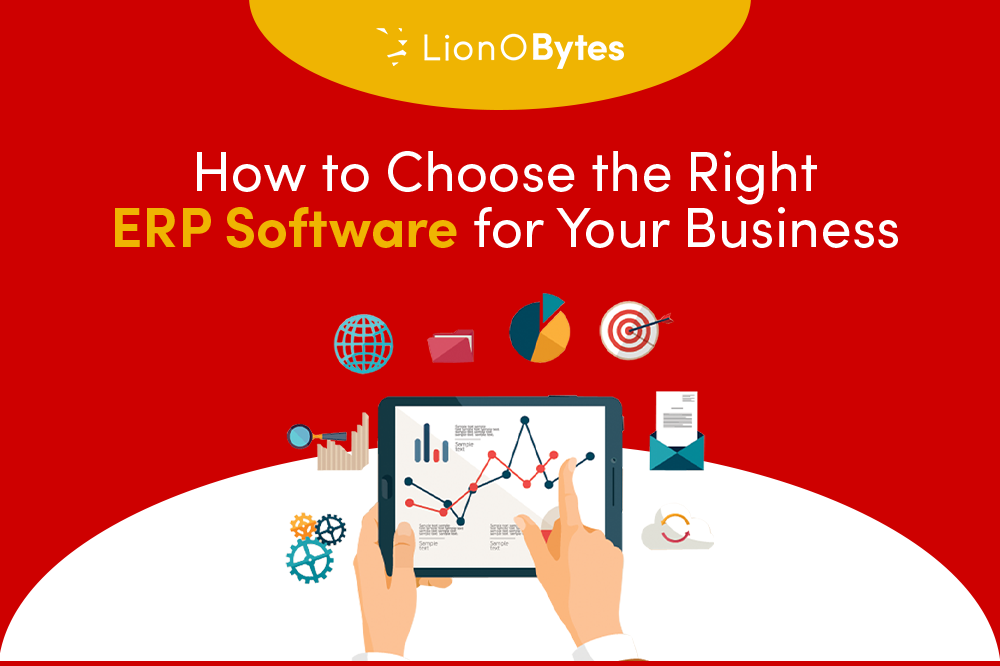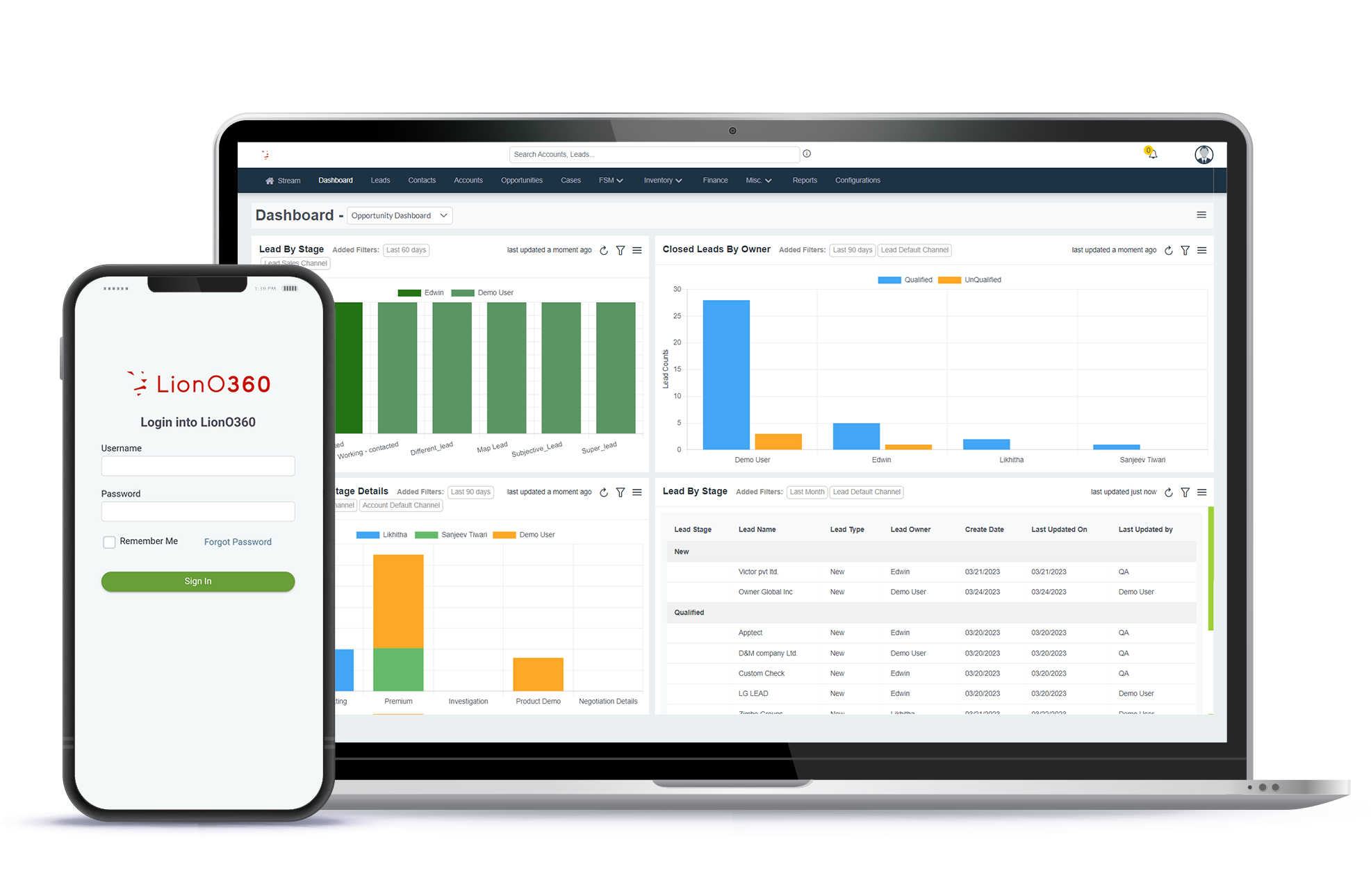
No matter how you have driven your business so far when choosing the right ERP software, careful considerations should be inevitable.
When you start studying the ERP market and industry adoption, you may hear associated terms like AI-powered ERP, ML (Machine Learning), Cloud-based ERP, process automation, and more on the list.
Since your business is unique, and taking your business to the next level, you need to study first your own business operations, data, and processes. Also, where there are your needs to simplify with ERP system adoption.
If your business is continuously growing, you need an ERP system to not merely support your current business needs, but to help you scale your business simultaneously.
From inventory management to multi-warehousing and finance management to custom reporting requires an ERP solution to effectively manage end-to-end process flow.
Through AI-based ERP, you can ensure seamless cross-department collaboration helping to connect core business functions, eliminate manual tasks, and enable centralized data ensuring everyone is on the same page in real-time.
This in turn helps improve efficiency, increase productivity, and reduce associated operational costs, which is the primary goal of every business and so yours.
How to Choose the Right ERP Software for Your Business
Initially, you start from somewhere, but at one point in time, you realize that your process flow is not going smoothly, your customer fulfillment is getting affected, and eventually, your business outcomes have started impacting.
This is the time when you need to upgrade your current system capabilities. And thus, ERP comes into the picture. So, here are the considerable factors that you need to understand when choosing the right ERP software for your business:
Determine your business objectives
Begin with your business objectives. Determine what goals you are willing to acquire through the ERP system. Here, your collective pain areas can help you determine your business objectives.
For instance, whether you want to improve operational efficiency, level up your customer experience, reduce costs, or maximize profitability. Coming up with your business objectives can help you simplify your ERP selection process.
Assess your business processes
Know what’s happening in your current business processes. Evaluate and identify the lacks and areas of improvement. Comprehensively assess the specific needs across departments distinctively.
In turn, you will get to know which modules are required to be implemented in your ERP software. This in turn can prevent you from implementing unnecessary modules helping save cost and time.
Come up with ERP features your business needs
It can be a proven milestone for your business if you decide which features or functional capabilities you need to support your ongoing business needs. Anyhow, if you are starting from scratch, you need to assess and review your feature needs extensively.
In case, if you are willing to switch from one ERP to another, things may go a bit easier for you. Again, it is also crucial to understand the market trends, technology innovations, and industry adoptions, or else your competitors may leave you behind.
As per current market trends, growing businesses believe in cloud-based ERP instead of on-premises. And yes, process automation is an hourly need, empowering businesses to eliminate time-consuming and error-prone manual processes. In turn, this enables businesses to level up productivity and improve efficiency.
Again, if you need to automate your processes, you need to choose an AI-powered ERP. This can help you automate your repetitive tasks, improve your customer communication, generate automated reports & analytics, and more.
Evaluate ERP Integration needs with your current system
So, if you are willing to continue using the current system as well as want to implement a new ERP system, it is crucial to select the ERP platform that can be easily integrated with your existing system, tools, or applications.
Such existing systems can be accounting software, e-commerce applications, POS (Point of Sale) systems, WhatsApp, E-mail platforms, and more.
Integrating your existing system with an AI-based ERP system helps ensure centralized data across systems while eliminating manually inputting data from one system to another.
Check the functional fit of ERP software across your organization
Access and analyze whether the new ERP system will be a good functional fit for your organization. This includes how the new ERP software will work with your current system. Further, whether the ERP for growing businesses will adjust as per your growing business needs.
Let's say your company plans to expand in global locations in the coming years. Here, you need to consider a cloud-based ERP solution that can meet your global compliance and regulation needs.
Moreover, you may have short-term or long-term goals. So, make sure whether the ERP is functionally fit to reinforce the same.
Essentially, you can map your functional fit need by considering the answers to common questions such as:
- Where is your current system lacking?
- In what areas does your current system work well?
- For which area are you lacking reporting and visibility?
- What manual processes do you want to get automated through the new ERP system?
- What existing systems are you willing to integrate with your ERP system?
Thus, answering these questions can help you choose the right ERP for your business.
Evaluate the vendors and select the right one
When it comes to choosing the right vendor for your ERP solution, the decision should be made carefully. Make sure they have prior experience in your industry and have a market reputation for delivering quality-assured solutions.
To analyze their market level, many market leaders such as Gartner, Forester, Customer Magazine USA, etc., publish vendor rankings, awards, and market research. Leveraging these reports can reveal to you the vendor’s ERP expertise and market level.
Once you have clarity of your vendor’s experience level and market reputation, ask them whether they will provide ongoing support and sufficient end-user training. This can help you effectively start using the newly built ERP system.
Also, ask whether they offer lifelong ERP support as your business grows, your system requires updates, customization, and other support. Thus, it is essential that your vendor should be ready to provide long-lasting assistance.
Determine your budget and consider costs accordingly
Considering your budget is such an essential factor as implementing an ERP system is a financial decision. Thus, make the decision accordingly. The cost of ERP systems varies worldwide. You can find options for small to mid-sized or large corporations. So, make the decision wisely.
If you are a small business, then there is no use in implementing ERP tailored to large organizations. However, you won’t require infrastructure costs if you choose cloud-based ERP as it runs on a browser.
Moreover, often cloud-based ERP system cost is defined as the number of user licenses you ask for. So, assess your business needs and come up with required user license requirements. However, with your growing business needs, you can anytime ask your vendor for more user licenses.
Lastly, do not forget to ask your provider if there is any hidden or additional cost in terms of end-user training, data migration, and ongoing support. This will help you stick with your budget and control things if anything goes out of your budget.
Decide which data to migrate to the new ERP system
You may have large data sets in your current system out of which certain data sets have no use and just reserving space in your system. So, it is important to decide which data should be migrated to the new ERP system.
Since you have multiple departments, your customer interaction happens across the departments. So, this can result in duplicate and redundant data. You may also have the same data in different formats or field names. In turn, this can create redundancy while field mapping with the new ERP system.
So, all you need to do is clean your system first and keep the relevant data only. Thus, make sure that the merely cleaned data is migrated to the new ERP system.
Choosing the Right ERP Software? Choose LionO360 ERP!
LionOBytes is an award-winning market player by the ‘Customer Magazine USA’. It offers LionO360 Cloud ERP software with comprehensive functional capabilities from Inventory Management and Multi-warehouse Management to Finance Management and Custom Reporting & Analytics.
With a customizable dashboard, access to visualized data helps to determine your day-to-day goals, streamline your workflow, and drive informed decision-making.
Our best ERP system also comprises generative AI functional capability that allows you to generate internal or customer emails helps save time for your employees and enables your sales team to focus on customer engagement instead of getting indulged in manual email writing.
We offer the best ERP system that comes with advanced functional capabilities. Such functional capabilities included Workflow Automation, Saved Searches, Global Search, inside module AI Chatbots, etc.
To understand the in-depth capabilities of our cloud ERP and how it can help you elevate your business capabilities, connect with experts at LionOBytes.
Frequently Asked Questions
Does a small business need ERP?
ERP systems are available for every scale of business. Certainly, to effectively manage your concurrent processes and reinforce your growing business needs, implementing ERP for growing businesses is essential.
What should I look for in a new ERP?
In your new ERP system, you must be assured of your current and future needs. Choose an industry-experienced vendor having expertise in implementing personalized ERP solutions for your business.
How can ERP benefit my business?
ERP can help you automate and streamline your process flow. With centralized data, it can help decision-makers make instant yet informed decisions.
From managing customers to inventory levels, multi-warehousing, order fulfillment, and finance management to accessing real-time reports & personalized dashboards, ERP can do a lot for your business. In turn, it can help you enhance your business capability, increase efficiency, improve productivity, and maximize your business outcomes.
Which industry can benefit from ERP solutions?
Almost all the industries can benefit from the ERP solutions.







